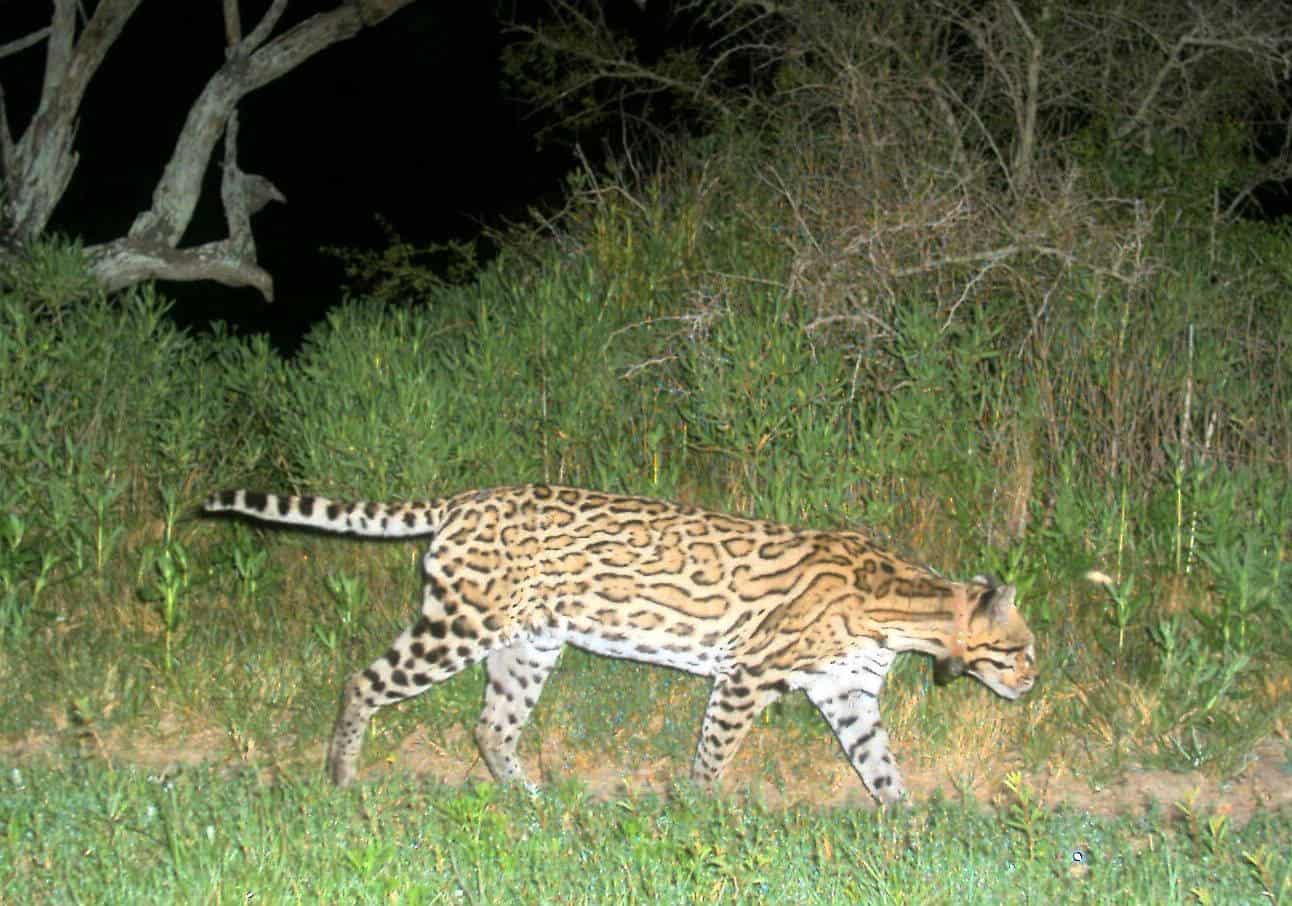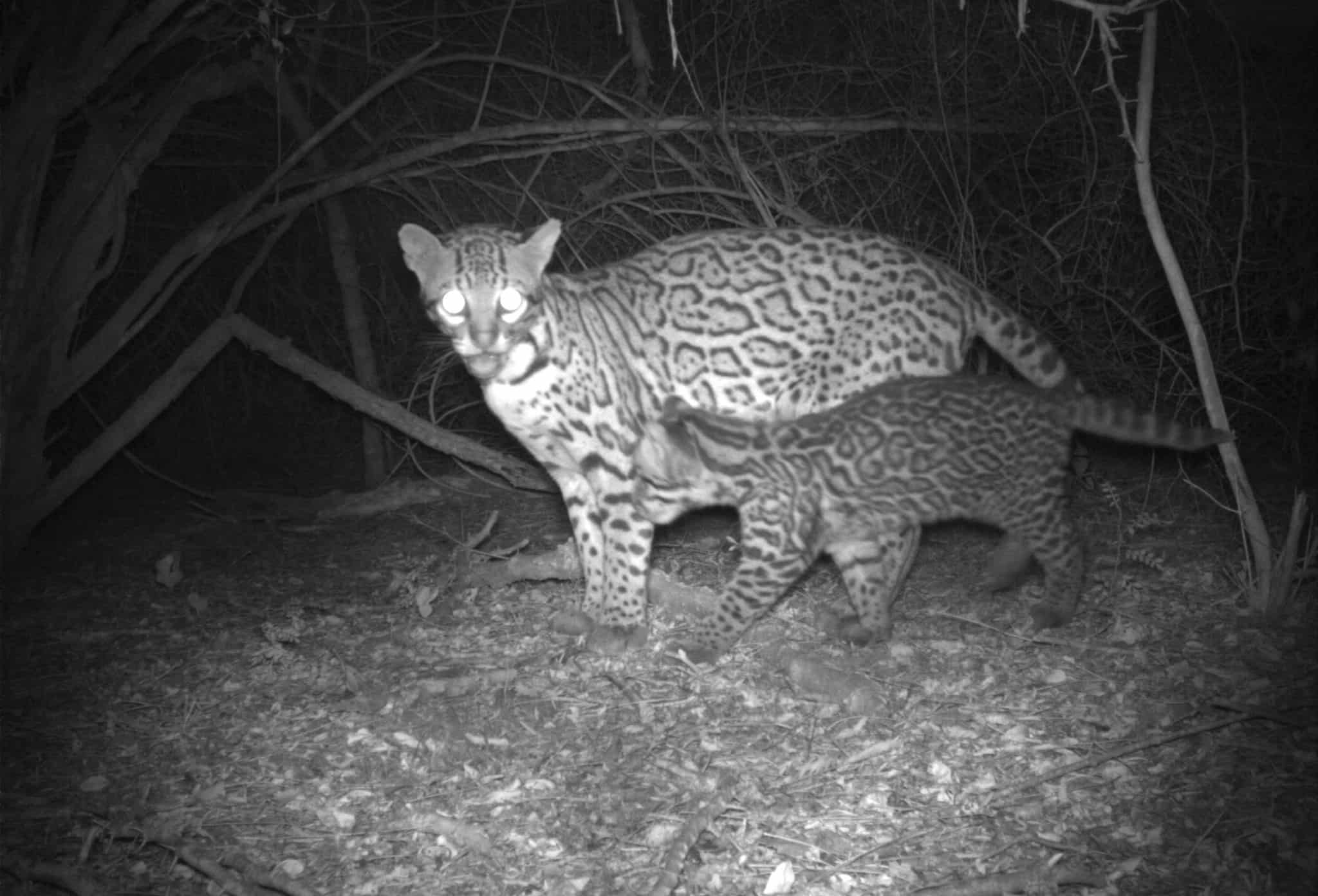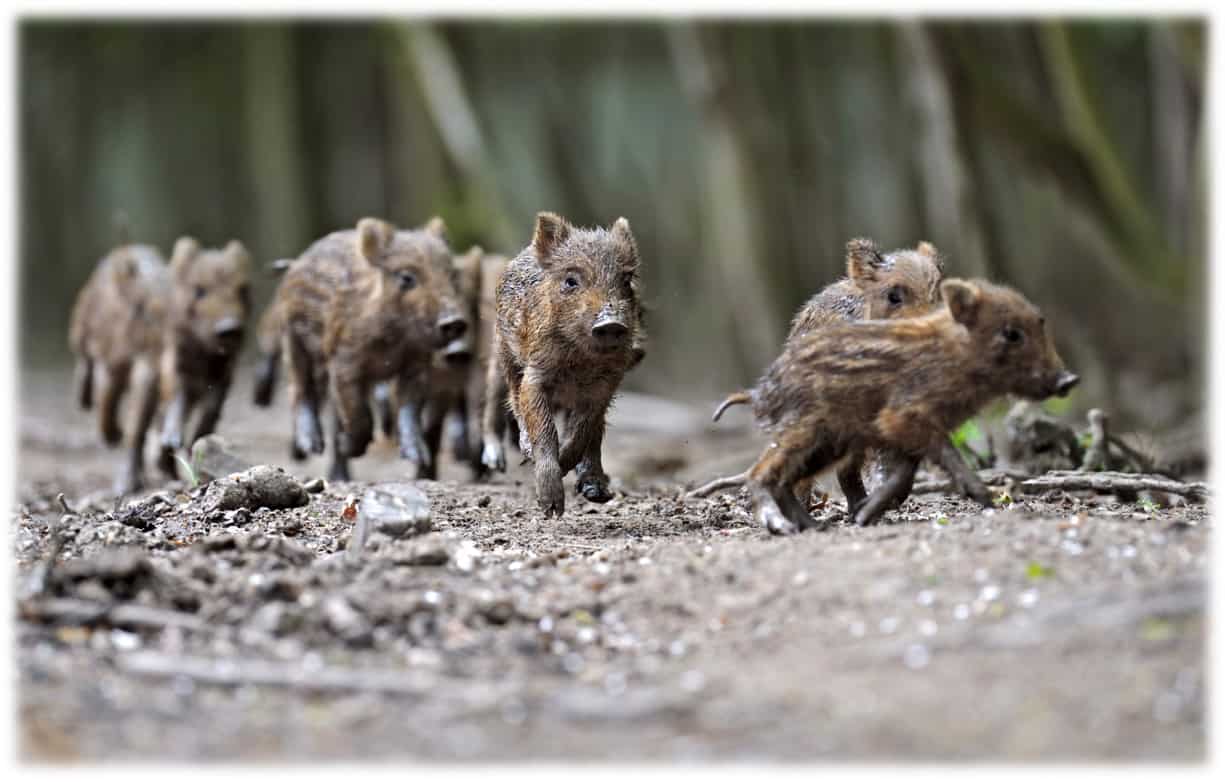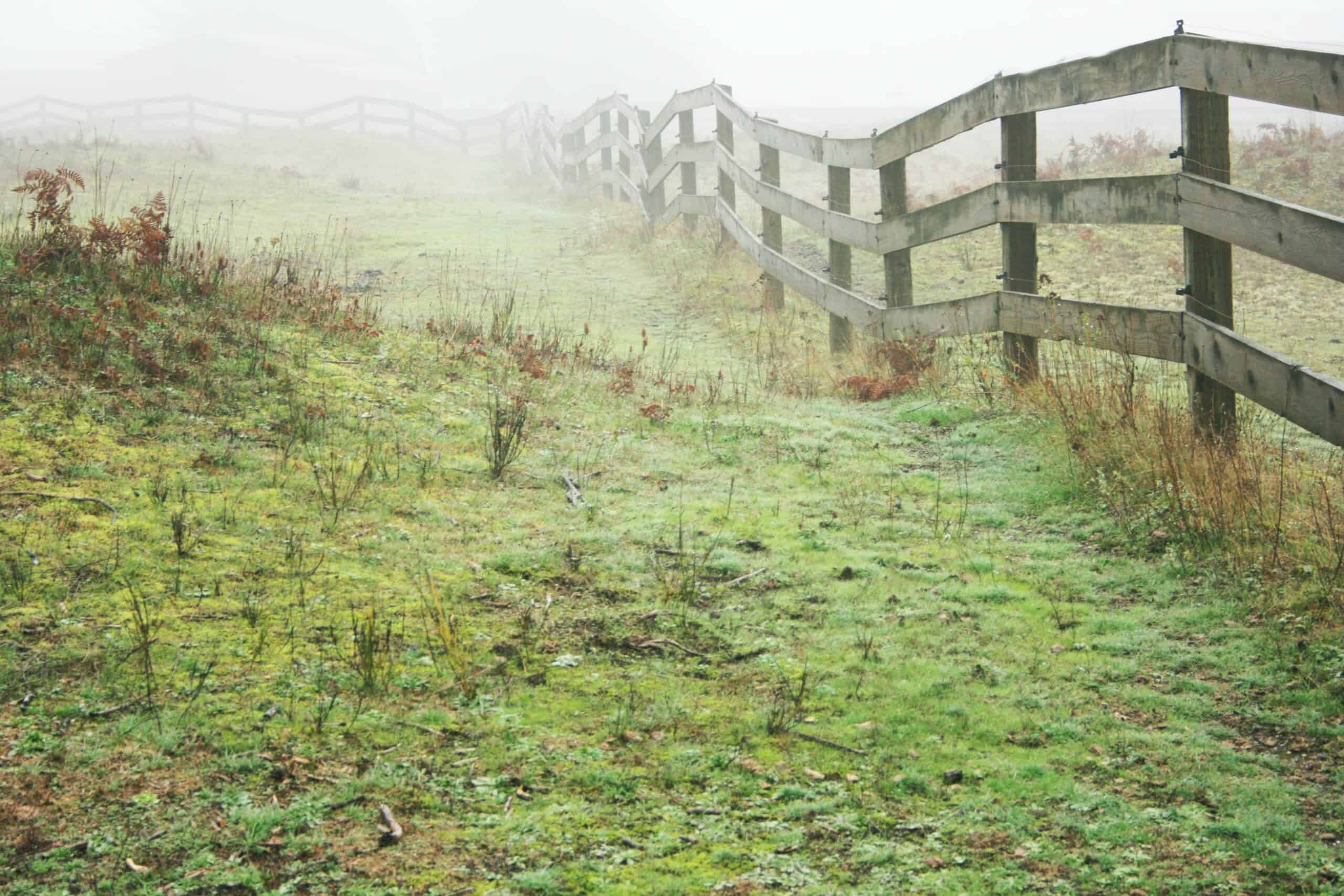Share this article
Wildlife Featured in this article
- Ocelot
New agreement paves the way for ocelot reintroduction on private lands
The safe harbor agreement lets ranch operations continue
The U.S. Fish and Wildlife Service and the nonprofit East Foundation have reached an agreement that would allow for the release of endangered ocelots on private lands in South Texas.
The safe harbor agreement allows landowners to continue with ranching operations in exchange for allowing recovery efforts on their land.
Under the agreement, ocelots will strategically be released at the East Foundation’s San Antonio Viejo Ranch with the hopes of establishing a permanent population. Researchers will monitor them to evaluate program success.
Listed as endangered since 1982, the ocelot (Leopardus pardalis) is known to only have breeding populations in scrublands along the Gulf Coast in South Texas.
While the agreement was reached with the East Foundation, a certificate of inclusion can allow landowners in surrounding counties to join even if they don’t release ocelots on their properties, as long as they promise to allow ocelots to use their land and they permit monitoring efforts.
The safe harbor agreement on the San Antonio Viejo Ranch also establishes that landowners within 31 miles of the ocelot release locations will not have any land use restrictions or other regulations placed upon them related to reintroduced ocelots—even if the landowners do not sign up for a certificate of inclusion.
The agreement is valid for 30 years but can be extended.
“The importance of innovative approaches and partnerships between private landowners, science, state agencies, federal agencies, and non-governmental organizations in moving conservation forward is why we are here today,” said TWS member John Silovsky, Texas Parks and Wildlife Department Wildlife Division director in a press release. “This safe harbor agreement will allow landowners to continue with their operations unimpeded while also helping in the recovery of ocelots to Texas.”
The East Foundation promotes land stewardship, using its 217,000 acres as a “working laboratory” to conserve healthy rangelands through ranching and wildlife management. It’s San Antonio Viego Ranch was identified as an ocelot reintroduction site based on its dense vegetation and remote location.
“Private working lands are essential for the conservation and recovery of native species, and private land stewards are often very interested in these efforts,” said Jason Sawyer, chief science officer for the East Foundation, in a press release. “However, they must weigh the conservation benefits against perceived risks often associated with the management of federally listed species. Part of our planning effort included ensuring that private landowners can actively participate in a desirable conservation activity without jeopardizing their ability to manage their land for multiple benefits. The Safe Harbor Agreement we are signing today provides private landowners with that assurance.”
With the safe harbor agreement in place, partners plan to begin developing a source stock of ocelots for reintroduction. Over the next year, they plan to construct an ocelot conservation facility in Kingsville to breed and raise ocelots. Producing the first offspring is expected to take a few years.
TWS member Lindsay Martinez, research program coordinator for the East Foundation, spoke about these efforts at the 2023 TWS Annual Conference in Louisville, Kentucky. “We’ve turned scientific relationships into conservation partnerships,” Martinez said. As relationship between conservationists and landowners improved, she said, “private landowners may be one of the biggest assets for ocelot conservation.”
Header Image: Ocelots have been listed as endangered since 1982. Credit: U.S. Fish and Wildlife Service








